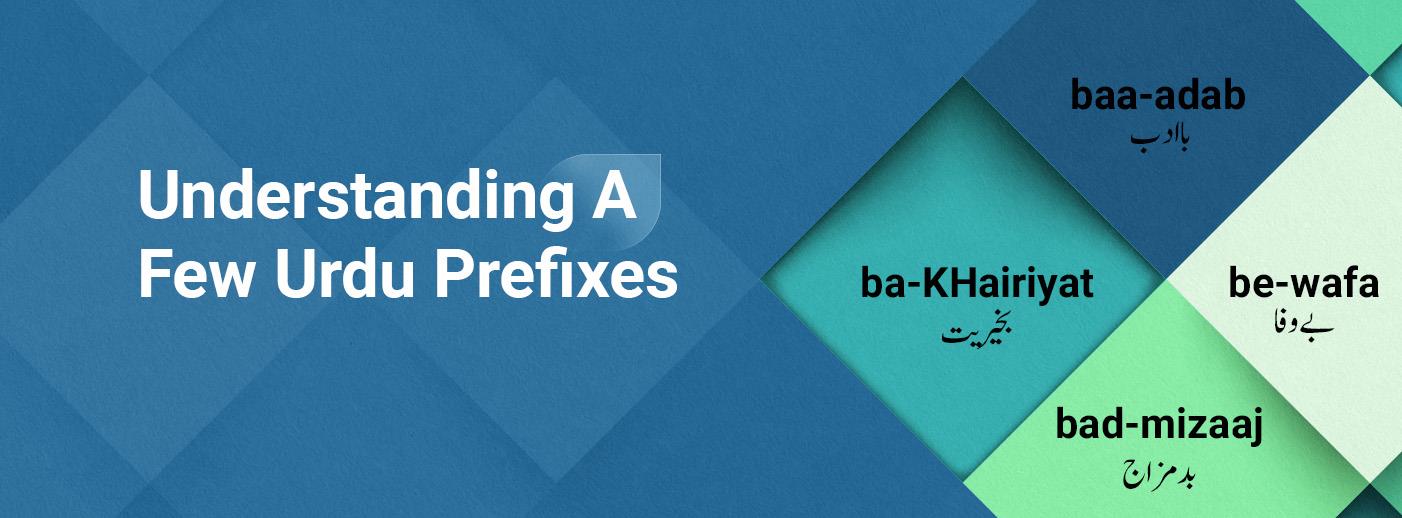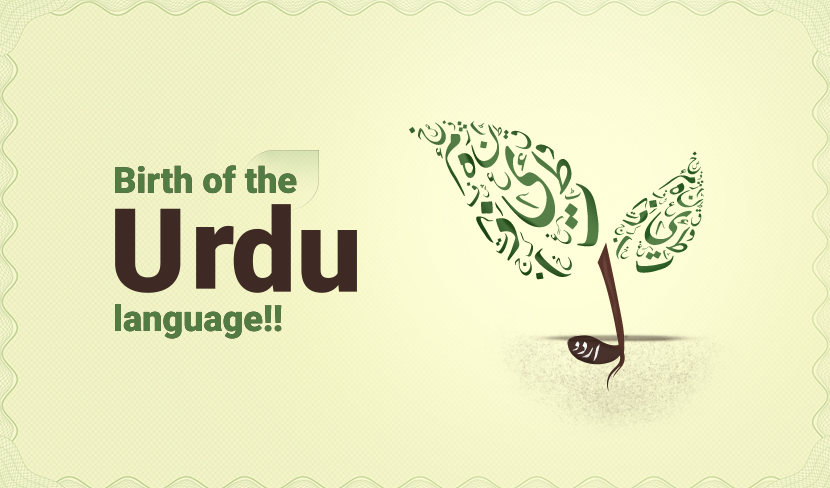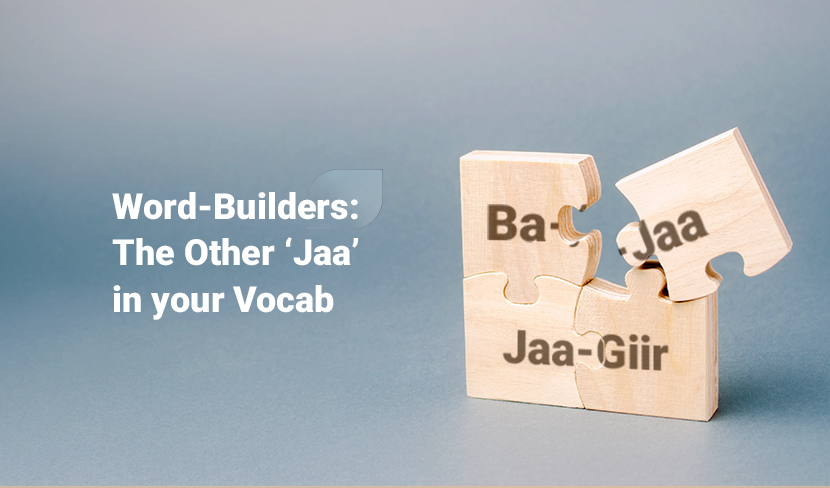Top searched
Saved words
khisyaanii billii khambaa noche
an embarrassed or ashamed person tends to vent his/her feeling by quarrelling
be-niyaaz
without want, free from want, wanting nothing, not in need, able to dispense, independent, carefree
Understanding A Few Urdu Prefixes

In the formation of compound words in Urdu, the word that precedes is called saabiqa (سابقہ), or the prefix, while the word that follows is called laahiqa (لاحقہ), or the suffix.
Let’s explore some common Urdu prefixes starting with the letter "be" (ب). These prefixes are used frequently in both everyday conversation and poetic expressions.
1. Baa (با)
The prefix Baa is a Persian word that serves as a preposition in Urdu. It generally means "with" or "from." For instance, in phrases like baa-adab (باادب), meaning "with respect," or adab ke saath (ادب کے ساتھ), meaning "along with respect." It also conveys the meaning of "possessor" or "holder," as in baa-wafa (باوفا), meaning "faithful," or baa-asar (بااثر), meaning "influential."
Some commonly used words with Baa include:
• Baa-wajood (باجود), meaning "despite" or "in spite of," as in the verse:
"Ai dost ham ne tark-e-mohabbat ke baa-wajood, mahsus ki hai teri zarurat kabhi kabhi"
("O friend, despite having forsaken love, I still feel your need from time to time.")
• Baa-waqar (باوقار), meaning "distinguished" or "honourable."
2. Be (بے)
The prefix Be means "without" or "void of." It is often used in negative or absence-related contexts, such as in the words be-vafa (بے وفا), meaning "unfaithful," or be-misaal (بے مثال), meaning "incomparable" or "unique." Other common words include:
• Be-zabaan (بے زبان), meaning "mute" or "speechless," as in the verse by Shahryar:
"Abañ mili bhi to kis waqt be-zabaanoñ ko, sunaane ke liye jab koi daastaan na rahi"
("Even if we met, when would the speechless have a tale to tell?")
• Be-kaar (بے کار), meaning "useless" or "idle."
• Be-hayaa (بے حیا), meaning "shameless."
• Be-kas (بیکس), meaning "helpless" or "destitute."
3. Ba (بہ)
Ba is a preposition and is often used as a prefix. Often it is confused with prefix ba . but it convey different meanings, such as "upon," "by means of," or "with." While sometimes written as ba (ب), its usage is distinct and carries different connotations:
• Ba in the sense of "upon," as in Khaak-ba-sar (خاک بسر), meaning "dust upon the head," which metaphorically refers to someone who is very troubled.
• Ba can also mean "by means of," as in ba-fazl-e-Khuda (بفضلِ خدا), meaning "by the grace of God."
• It can indicate "from," as in ba-nam-e-Khuda (بنامِ خدا), meaning "in the name of God," or ba-jaan-o-dil (بجان و دل), meaning "with heart and soul."
• In the sense of "with," as in ba-Khairiyat (بخیریت), meaning "with safety."
• In the sense of "in," as in ba-zaahir (بظاہر), meaning "in appearance," or ba-khidmat (بخدمت), meaning "in service."
4. Bad (بد)
The prefix Bad means "bad," "corrupt," or "inauspicious." It is used in words that convey negative qualities or attributes:
• Bad-tameez (بد تمیز), meaning "ill-mannered" or "rude."
• Bad-ma'aash (بد معاش), meaning someone who engages in immoral or illegal means of earning, often used for a scoundrel or rascal.
• Bad-naseeb (بد نصیب), meaning "unfortunate" or "ill-fated."
• Bad-mizaj (بد مزاج), meaning "ill-tempered," as used by poet Bashir Badr in the following verse:
"Hai ajeeb shahr ki zindagi, na safar raha, na qayam hai,
Kahin kaarobar si dopahar, kahin bad-mizaaj si shaam hai."
("The city life is strange, neither a journey nor a stay,
Sometimes a business-like afternoon, sometimes an ill-tempered evening.")
Understanding these prefixes—Baa, Be, Ba, and Bad—is essential to mastering the nuances of the Urdu language. Each one carries its unique meaning and can transform the meaning of the root word, enriching both the language and the expression of ideas.
Delete 44 saved words?
Do you really want to delete these records? This process cannot be undone





